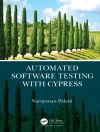Learn advanced techniques to improve the performance and quality of your predictive models
Key Features
- Use ensemble methods to improve the performance of predictive analytics models
- Implement feature selection, dimensionality reduction, and cross-validation techniques
- Develop neural network models and master the basics of deep learning
Book Description
Python is a programming language that provides a wide range of features that can be used in the field of data science. Mastering Predictive Analytics with scikit-learn and Tensor Flow covers various implementations of ensemble methods, how they are used with real-world datasets, and how they improve prediction accuracy in classification and regression problems.
This book starts with ensemble methods and their features. You will see that scikit-learn provides tools for choosing hyperparameters for models. As you make your way through the book, you will cover the nitty-gritty of predictive analytics and explore its features and characteristics. You will also be introduced to artificial neural networks and Tensor Flow, and how it is used to create neural networks. In the final chapter, you will explore factors such as computational power, along with improvement methods and software enhancements for efficient predictive analytics.
By the end of this book, you will be well-versed in using deep neural networks to solve common problems in big data analysis.
What you will learn
- Use ensemble algorithms to obtain accurate predictions
- Apply dimensionality reduction techniques to combine features and build better models
- Choose the optimal hyperparameters using cross-validation
- Implement different techniques to solve current challenges in the predictive analytics domain
- Understand various elements of deep neural network (DNN) models
- Implement neural networks to solve both classification and regression problems
Who this book is for
Mastering Predictive Analytics with scikit-learn and Tensor Flow is for data analysts, software engineers, and machine learning developers who are interested in implementing advanced predictive analytics using Python. Business intelligence experts will also find this book indispensable as it will teach them how to progress from basic predictive models to building advanced models and producing more accurate predictions. Prior knowledge of Python and familiarity with predictive analytics concepts are assumed.












